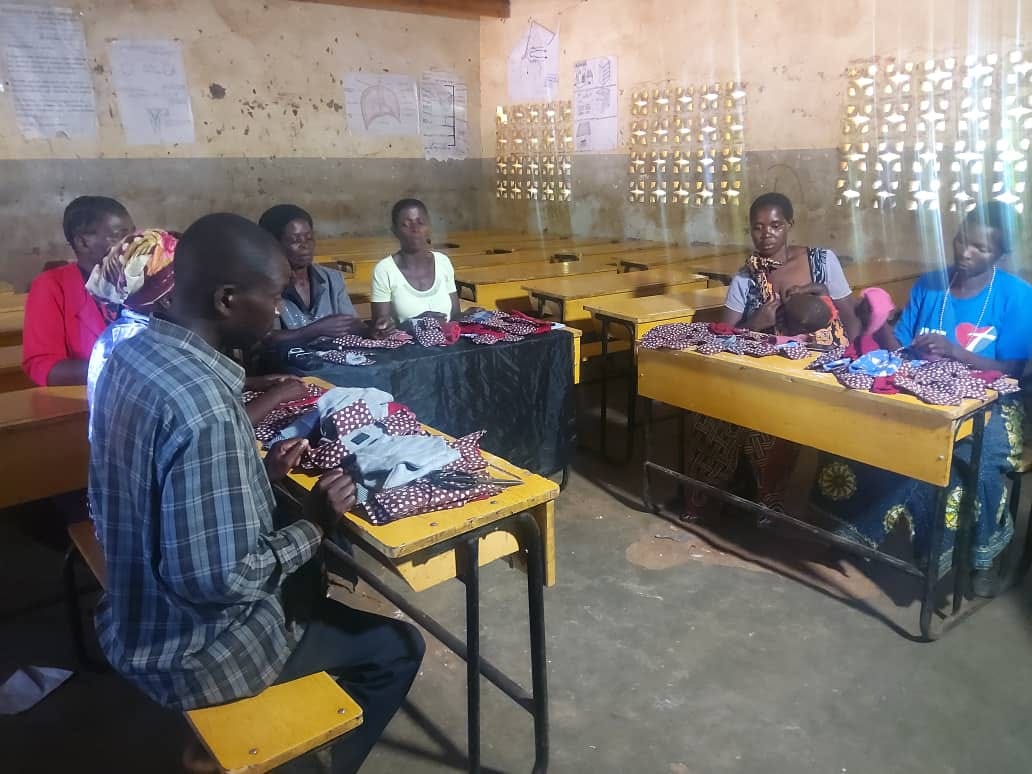Dowa Man Champions Menstrual Hygiene, Helping Girls Stay in School
Mateyu’s participation is a powerful example of how men can play a vital role in breaking down traditional gender stereotypes and contributing to the well-being of girls in their communities.
Dowa, Malawi — A 40-year-old man from Traditional Authority Chakhaza in Dowa district, Malawi, is breaking down barriers and challenging traditional gender roles by advocating for menstrual hygiene management in his community, writes Meclina Chirwa.
Maxwell Mateyu has joined a mother group at Nagwira Primary School, actively participating in the creation of reusable sanitary pads, a crucial step in addressing period poverty.
“I was concerned with how girls struggle during menses,” Mateyu said.
“Menstrual poverty is very high in our community, and it’s very difficult for some households to support their girls with proper menstrual products. I felt bad and asked myself if I could take part in the making of reusable sanitary pads.”
Mateyu’s commitment stems from World Vision’s initiative to empower mother groups to use local resources for creating reusable sanitary pads.
“World Vision has been supportive and we appreciate their efforts,” he said.
This program has demonstrably impacted Nagwira Primary School, with a noticeable reduction in girls dropping out.
Headteacher Chiyanjanitso Pitilosi attributed the positive change to the program, saying, “Girls grapple with menstrual poverty, which often leads to absenteeism and school dropouts. The initiative has helped the girl child to remain in school, and cases of absenteeism have gone down.”
The mother group, she added, has also become a source of counselling for girls on menstrual hygiene.
Carol Lumbalu, World Vision’s development facilitator for Kasangadzi Area, highlighted the broader goal of the program: “The goal is to provide a solution that allows girls to continue attending school during their menstrual periods without fear of embarrassment or discomfort. It is our wish to engage more men and realize their role in promoting menstrual hygiene management.”
The program, which has established 15 Mother Groups in Kasangadzi Area—12 at primary schools, two at secondary schools, and one at the community level—shows the power of community-driven solutions to address complex issues.
Mateyu’s participation is a powerful example of how men can play a vital role in breaking down traditional gender stereotypes and contributing to the well-being of girls in their communities.



